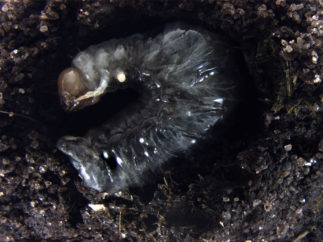Human influences on evolution: Theme issue
Niche construction refers to a process by which organisms modify their environments through their evolved traits, which in turn can feed back on the organisms themselves by modifying the selection processes they experience. Although the evolutionary importance and consequences of such niche construction is still debated, few biologists would deny its existence. The classical example of niche construction is the beaver and the dams that it builds, which have huge landscape consequences.
Mum’s microbes are important for dung beetle development
An animal’s microbes not only help it to digest food, absorb nutrients and fight disease, they are also important during normal development. Researchers at Indiana University have shown that the collection of microbes passed from a beetle mother to her offspring (the maternal microbiome) is critically important for development of beetle larvae and their resistance to environmental challenges. The study, led by evolutionary developmental biologists, Daniel Schwab and Armin Moczek, focused on the dung beetle species, Onthophagus gazella.
EES Workshop 1: Cause and process in evolution
11-14 May 2017
Introducing EES Update
It is a privilege to study evolution in this tremendously exciting era. New ideas and data are flooding in and, to many of us, the findings are both exhilarating and challenging. Evolutionary biology has never been more vibrant.
EES Workshop 2: Integrating development and inheritance
13-15 February 2018
EES Workshop 3: Directional biases in evolution
14-16 November 2018
Evolution Evolving: Process, Mechanism and Theory
1-4 April 2019








